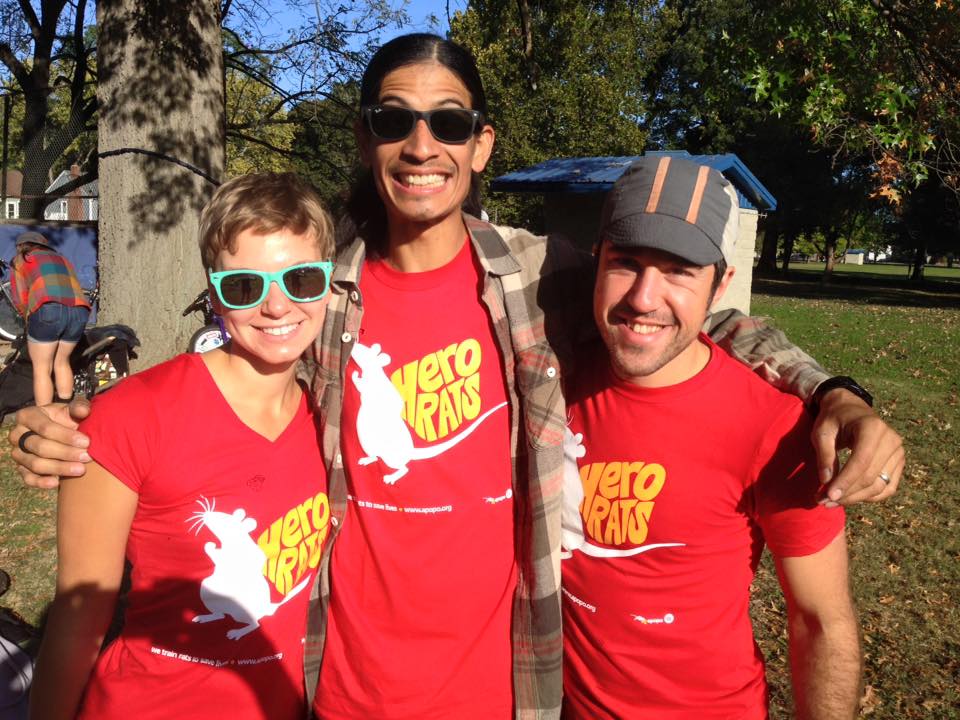Building an online community is a priority for most non-profit organizations. Active and engaged online communities create a wealth of opportunities: to attract volunteers, increase fundraising revenue, expand reach, or campaign for change.
APOPO is a non-profit that is famous for training giant rats to detect landmines and tuberculosis. Here are five approaches we use to build a strong, active community of supporters:
Do everything you can to create online engagement with your organization.
Many non-profits operate in a technical world and it is crucial that they make their work as accessible and relevant as possible. Here are some ways to engage your audience:
It’s impossible to build an online community without listening to your audience. It is important to adapt to their needs as much as you can.
It is not enough to simply observe what people are saying about you, as it won’t provide the full picture. The best solution is to ask your audience, quite directly, how are we doing? What would you like to see more of?
These types of questions will generate a flood of responses and ideas that you may never have considered before. I often ask these types of questions when we are planning for the future.
It is important to try to provide the content that your audience has suggested. Certain ideas will not be possible due to logistical, technical, or financial restrictions, but take the opportunity to explain this to your audience and they will thank you for it. And if you promise something, do everything you can to deliver it. It’s better to under-promise and over-deliver than to disappoint your fan base.
Also remember that it’s not just about you. Don’t be shy about asking your audience who their favorite non-profit is or how they will be celebrating a particular event. All this information creates dialogue and will help you to build up a better picture of who your audience is and how best to support them.
Non-profit organizations are understandably protective of their brands, but as the world moves from a culture of consumers to a culture of creators it offers up new opportunities for interaction.
Online communities offer the chance to crowdsource ideas and initiatives from a group of people who are already invested in your work. Harness the power of your community and you never know what diamonds you may discover in the rough.
Competitions are great ways for people to get involved with your organization and work particularly well if you can offer a small prize. There are endless possibilities for contests: t-shirt design, slogan creation, video production, caption writing, and many more.
Give your audience a chance to put their own unique spin on your organization and you will not only generate a ton of great ideas, but you’ll create a special engagement with your fans that they won’t forget.

Social media have opened up non-profits in a way never seen before. Audiences can now comment on and critique your work in public forums, which forces organizations to be more accountable to their supporters, and to the general public. Online communities may oblige organizations to engage in conversations that they have previously avoided.
There’s one rule of the internet that is especially relevant for non-profits: TELL THE TRUTH. If you lie, you will eventually be found out and your audience will never forget. The internet makes fact checking easier than ever, and if you try to deceive your audience, either deliberately or through omission, they will discover it.
It is far better to be as open, accountable, and transparent as possible with your community. Sometimes there will be difficult questions, sometimes there will be demands for answers you don’t know, but treat your audience with the respect they deserve and they will pay you back with loyalty tenfold.
At APOPO we work with animals and unfortunately they sometimes pass away. Our supporters are passionate about the welfare of our animals and there were fears that discussion of this aspect might create a negative response.
The reality was far different; our audience came out in support of our work like never before, and it was immediately apparent that many of our supporters had only empathy and compassion with us for what it is like to lose an animal friend. By being honest about the realities of our work we created a shared understanding and a deeper level of connection with our fan base.
The next step beyond engagement is participation, which means enabling your audience to get involved in your work. As your online community grows you will be able to reach more people with an ever-expanding range of interests and skills. Now all you need to do is put them to work!
When managed well, volunteers can make a huge contribution to a non-profit and can add skills and knowledge to under-resourced organizations. It’s not just individual support that an online community can provide, but access to networks you may not otherwise be able to connect with.
Audience members may work for companies you want to reach, they may be members of groups that can support you, or they could be the inside contact you need to get your foot in the door.
The key to fostering participation is to identify needs, encourage and highlight community support, and to retain supporters who offer to work with you.
A vibrant and supportive online community takes time to build, but is well worth the effort of any non-profit organization. An active supporter base will expand your reach dramatically, convince more people of the value of your work, and help your organization to flourish.
Banner image: Jason Howie